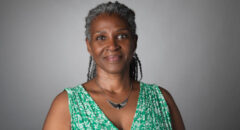 (BlackDoctor.org) — Fewer people opted for potentially lifesaving colonoscopies to screen for colon cancer during the recent economic recession, largely because they couldn’t afford to pay high out-of-pocket costs often associated with this test, new research finds.
(BlackDoctor.org) — Fewer people opted for potentially lifesaving colonoscopies to screen for colon cancer during the recent economic recession, largely because they couldn’t afford to pay high out-of-pocket costs often associated with this test, new research finds.
The problem? African American men have less than a 5-year survival rate for colon cancer, and should therefore be screened for the disease at 40 (10 years earlier than their White counterparts).
About 500,000 fewer Blacks who had health insurance underwent a screening colonoscopy, compared to the two years before the recession began. The study findings appear in the March issue of Clinical Gastroenterology and Hepatology.
“In difficult economic times, people are more likely to forgo necessary medical services if there are high out-of-pocket costs,” said study author Dr. Spencer Dorn, an assistant professor of medicine in the division of gastroenterology and hepatology at University of North Carolina at Chapel Hill. And “colonoscopy is never the most popular service to begin with.”
During a colonoscopy, a doctor looks for abnormalities in the interior lining of your large intestine — the rectum and colon — with a camera after a day-long bowel cleanse or prep. The U.S. Preventive Services Task Force (USPSTF) recommends colorectal screening for people aged 50 and 75, but because of the higher rates of death due to colonrectal cancer, experts recommend that Blacks, particularly Black men, get screened beginning at age 40.
Before the recession, the number of colonoscopies performed each year increased steadily, largely because of general awareness of the test’s benefits and broader coverage by insurance companies, Dorn said.
The new study included data from 106 U.S. health plans on colonoscopy rates before and during the recession among people aged 50 to 64. Those people with out-of-pocket costs of at least $300 were less likely to have a colonoscopy during the recession compared to those with lower out-of-pocket costs, the study showed. Out-of-pocket costs in the study referred to co-insurance payments.
A similar trend — higher co-pays and fewer cancer screenings — seems to have occurred with mammograms, according to study background information.
A recent study in the New England Journal of Medicine showed colonoscopy can prevent colorectal cancer and dramatically reduce deaths from the disease. “Let’s hope the economy gets better and we can try to get rid of cost sharing for colonoscopy,” Dorn said.
As part of health reform, federal changes are under way that do away with co-pays for people covered by Medicare, Medicaid or new insurers for any test that the USPSTF deems as grade A. This includes colonoscopy.
Such cost-cutting measures are needed if Americans are to comply with recommended screening guidelines, the study authors and other experts say.
Among them is Dr. Robynne Chutkan, an assistant professor of medicine at Georgetown University Hospital in Washington, D.C. “Screening colonoscopy saves lives and is an important part of the preventive health care measures that we recommend for people age 50 and older,” said Chutkan.
“One can only hope that at least some of the decrease in colonoscopies during the time period described represented people who were in financial straits at the time, but have now recovered and are able to refocus on their health,” Chutkan said.
“We know that cost-sharing is a disincentive psychologically, even if the co-pay amount is small and ‘affordable.’ In principle, it is still a barrier for many people,” Chutkan said.








